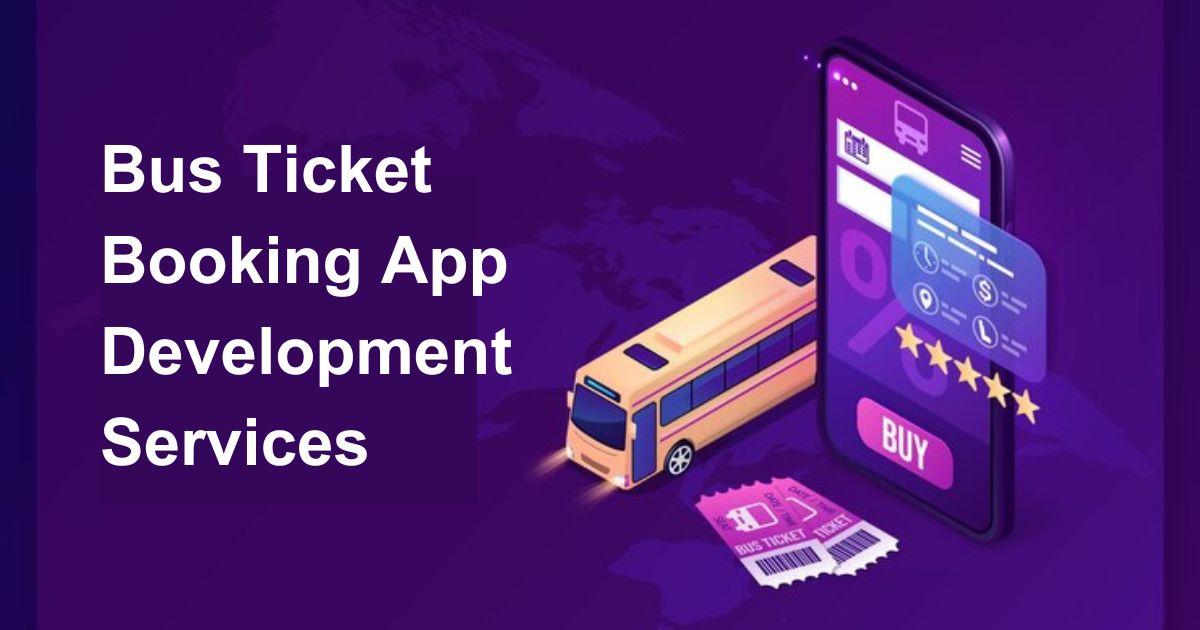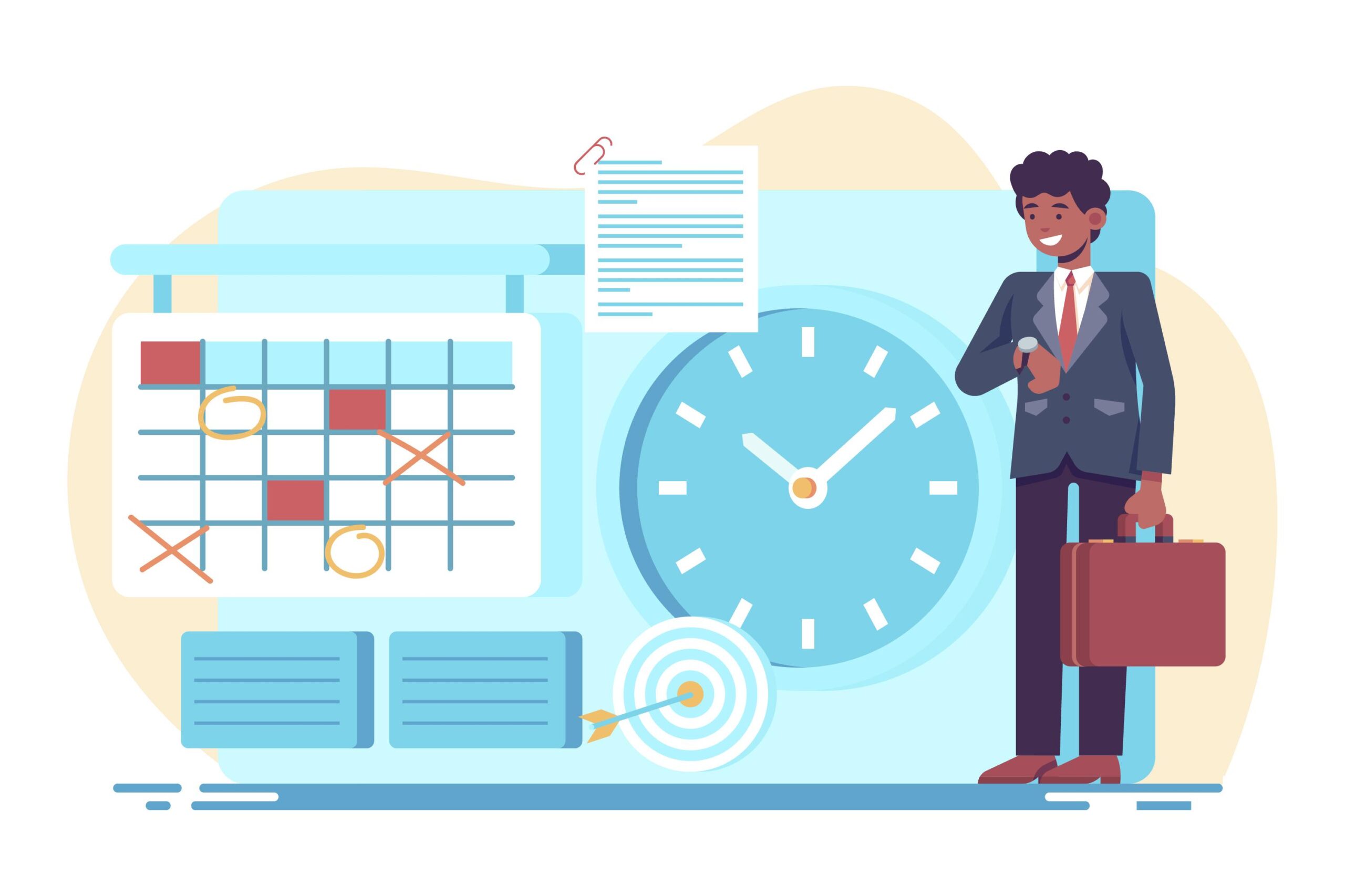Bus Booking App Development: Cost Breakdown and ROI Analysis
With the increasing reliance on digital solutions, the transportation industry is also embracing modern technology. One of the most exciting transformations is the development of bus booking apps, which have changed the way we travel. If you’re thinking about launching a bus booking app development project, you’re likely wondering about the cost and potential return on investment (ROI). This guide will help you understand both the financial investment required and the benefits you can expect from creating a bus ticket booking app.
Let’s break down everything you need to know—cost, ROI, and why bus reservation systems are becoming the backbone of modern transportation businesses.
Why Invest in a Bus Booking App?
The demand for online bus ticketing systems has skyrocketed as consumers shift toward the convenience of booking travel on their smartphones. Gone are the days of standing in long lines at bus stations or dealing with paper tickets. A bus reservation system offers travellers ease, flexibility, and instant access to schedules, seat availability, and pricing.
But why should you, as a business owner, invest in this?
Simply put, there’s enormous potential for growth. Transportation companies, both large and small, can benefit from digital transformation. Whether you’re running a small bus service or a large fleet, automating your booking process can significantly improve customer satisfaction and operational efficiency. Not to mention, the revenue generation opportunities are vast, with options like ticket sales, advertising, and partnerships.
Key Features of a Bus Booking App
Before diving into costs, let’s first look at the essential features of a bus booking app. Including these in your app will ensure it meets customer expectations and helps streamline operations:
1. User Registration and Profiles
Users should be able to create accounts, manage their information, and view their booking history easily. Social login options, like using Google or Facebook, can make this process smoother.
2. Bus Search and Filters
Your app should allow users to search for buses by destination, time, and bus type. Filters for amenities, seat types, and pricing will enhance the user experience.
3. Real-Time Seat Availability
Displaying up-to-date seat availability is crucial. Users should be able to see which seats are taken and which are available in real-time.
4. Online Payments
Integrating secure and flexible payment gateways (like PayPal, Stripe, or local payment options) is essential for seamless transactions. Offering multiple payment methods, including credit/debit cards and digital wallets, makes it easier for users to complete their bookings.
5. Ticket Management
Users need to be able to view, download, and manage their tickets directly from the app. Adding QR code functionality for e-ticketing can speed up the boarding process.
6. Push Notifications
Keep customers informed about bus timings, delays, promotions, or special offers through push notifications. This also encourages repeat use of the app.
7. GPS Tracking
Real-time bus tracking allows passengers to check the exact location of the bus, improving their experience and reducing uncertainty about arrival times.
8. Customer Support
Incorporating a customer support chat feature or FAQ section is vital for assisting users with inquiries or issues.
Cost Breakdown for Bus Booking App Development
The cost of developing a bus ticket booking app can vary greatly depending on several factors, including the features you want, the development team’s location, and the complexity of the app. Here’s a rough breakdown of the major cost components involved in bus booking app development.
1. App Design
Creating a user-friendly interface that is intuitive and attractive is crucial. Design costs can range between $5,000 and $20,000 depending on the level of customization and the number of screens in the app.
2. App Development (Front-End & Back-End)
Developing the app’s front-end (the part users interact with) and back-end (server-side logic, databases, etc.) is the bulk of the cost. For a basic bus reservation system, this can range from $20,000 to $50,000. More advanced features, like real-time tracking and seat mapping, can push this figure higher.
- iOS/Android Compatibility: If you want to build for both iOS and Android platforms, you’ll need to budget for cross-platform development or separate teams, which can increase costs by 30-40%.
3. Payment Gateway Integration
Integrating a secure payment system is essential, and this usually costs between $3,000 and $7,000, depending on the number of payment methods and security protocols you want to implement.
4. API Integration
If you’re working with third-party APIs (for bus schedules, GPS tracking, etc.), this could add an additional $2,000 to $10,000 to your development costs.
5. Testing and Quality Assurance (QA)
QA testing ensures that your app runs smoothly and without bugs. Expect to spend about $5,000 to $15,000, depending on the app’s complexity and the number of platforms it’s launched on.
6. Maintenance and Updates
After launching the app, you’ll need ongoing maintenance to fix bugs, update features, and ensure compatibility with new mobile operating systems. Monthly maintenance costs usually range between $2,000 and $5,000.
Total Cost Estimate
In total, the cost of bus ticket booking app development typically ranges from $10,000 to $1,00,000. However, for more complex apps with cutting-edge features like AI-powered chatbots or blockchain-based ticketing, the costs can soar to $1,00,000 or higher.
Factors Influencing Bus Booking App Development Costs
Several factors can influence the overall cost of your bus reservation system. Here’s a quick breakdown:
- Complexity of Features: More features equal more time and development resources.
- Team Size and Location: Hiring a mobile app development company in regions like the U.S. or Europe is generally more expensive than hiring developers from countries like India or Eastern Europe.
- Technology Stack: The choice of technology (programming languages, databases, and APIs) can affect the cost, especially if you want to include cutting-edge technologies like AI or machine learning.
ROI of Bus Booking App Development
Now that we’ve covered the costs let’s talk about ROI. Developing a bus booking app isn’t just an expense; it’s an investment that can yield significant returns. Here’s how:
1. Increased Revenue
By offering an easy-to-use booking platform, you can reach a larger audience. Many bus operators have seen a 20-30% increase in bookings after implementing a mobile bus reservation system. You can also earn from advertising, partnerships, or by charging a small convenience fee for online bookings.
2. Improved Customer Satisfaction
The convenience of booking tickets on the go, along with real-time tracking and easy payment options, leads to higher customer satisfaction. Happier customers are more likely to become repeat customers, boosting your long-term revenue.
3. Operational Efficiency
Automating your booking process will reduce the need for manual intervention, minimize human error, and reduce operational costs. This, in turn, leads to higher profit margins.
4. Data Insights
Your app can collect valuable data on customer preferences, travel habits, and peak booking times. This data can be used to improve your services, launch targeted promotions, and enhance customer retention strategies.
5. Long-Term Cost Savings
While the initial investment in bus booking app development may seem high, the long-term savings are significant. You’ll cut down on ticketing staff, minimize paperwork, and reduce the likelihood of overbooking or scheduling errors.
Choosing the Right Mobile App Development Company
Finding the right mobile app development company to bring your vision to life is critical. Look for a company with experience in on-demand app development and expertise in building transportation solutions. Ensure they offer end-to-end services, from initial planning and design to development, testing, and post-launch support.
Bus booking app development is a complex but rewarding venture. With the right team, you can create a powerful app that meets customer demands, improves your operational efficiency, and delivers a healthy return on investment.
Wrapping Up!
Developing a bus ticket booking app involves a significant investment of time and resources, but the potential rewards are immense. As the world increasingly moves toward digital solutions, the need for an efficient, user-friendly bus reservation system will only grow. By investing in the right features and working with a reputable mobile app development company, you can create a successful app that meets both customer needs and business goals.














Post Comment